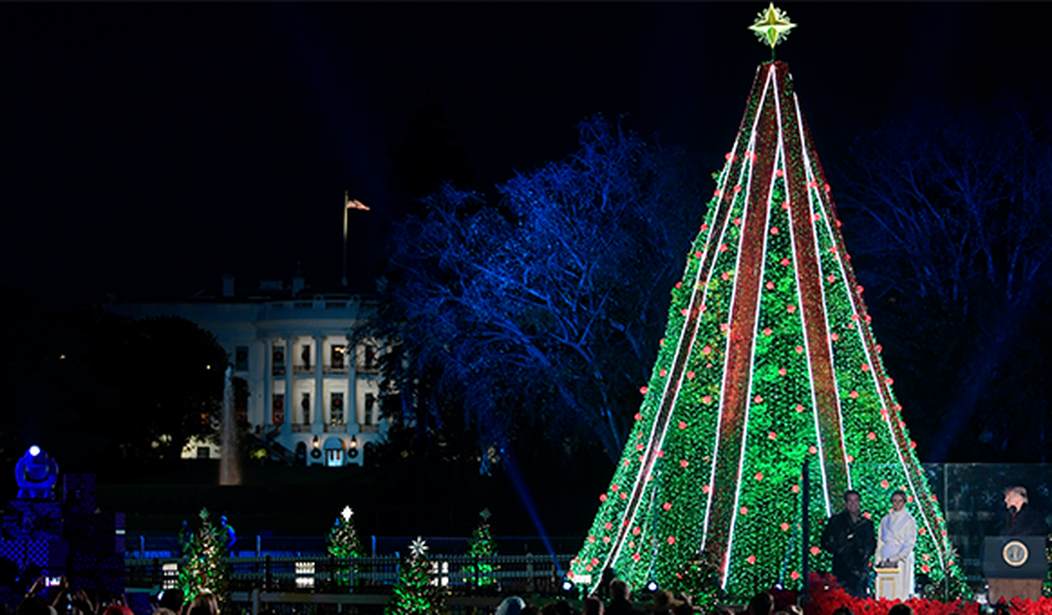For the Christian, every day is Christmas.
Still, because the Christian world reserves this period between Thanksgiving and the beginning of the New Year to commemorate the Birth of all births, this is as timely an occasion as any for both the disciples of the Carpenter from Galilee as well as all who celebrate the Season to become acquainted, or reacquainted, with a few considerations.
First, “the Holiday Season,” from which businesses small and large and of all conceivable kinds rake in billions each year, is simply the Christmas Season by any other name.
In other words, there would be no “Holiday Season” if there didn’t first exist a Christmas season to be exploited, to be secularized, commercialized, and reduced to a deracinated “Holiday Season.”
The gazillions of lights and other decorations; the countless films and television programs, with their plots revolving around miraculous happenings, including the redemption of otherwise seemingly irredeemable characters and the prevailing of love over all; candy canes; the exchanging of gifts; and even Santa Claus, a figure based upon the Christian bishop, Saint Nicholas. These all find their original inspiration in the Advent of Christ.
The “Holiday Season” is the Christmas Season by another name. It is the time of the year when atheists, agnostics, the irreligious—comprehensively, the secular—celebrate Christmas while denying to themselves that they are doing any such thing.
The secular will undoubtedly counter this charge by claiming, as both secular and even Christians of a certain cast unfailingly claim, that the Christmas traditions and symbols with which most of us are now familiar have themselves been lifted from paganism. To this response, there is a reply ready at hand:
Recommended
Yes, it’s true. Christians from early on and throughout the centuries have indeed appropriated aspects of paganism for their own religious and theological purposes. Two emblematic figures in this regard are the greatest of Christian thinkers, Saints Augustine of Hippo and Thomas Aquinas, both of whom are credited with having “baptized,” respectively, the greatest of Greek pagan philosophers: Plato and Aristotle.
But this concession actually underscores all that much more both the Christian character of these practices as well as confirms the original thesis that it is not paganism, but Christianity, or at least paganism Christianized that the secularist celebrates.
Paganism has not so much been superseded by Christianity as much as it has been beautified, sanctified, perfected by it.
Second, the distinctive Christmas custom of gift-giving is loaded with a rich and deep theological and metaphysical significance that it is all too easy to overlook.
It’s true that when the three wise men paid homage to the Babe in the Manger, they supplied future generations with a precedent for exchanging gifts at Christmas. However, ultimately, the latter practice is based upon the Incarnation: Because Christians hold that God, the Creator, Sustainer, and Redeemer of the cosmos, assumed flesh and, beginning in the womb of His mother Mary, became a human being in the person of Jesus of Nazareth, billions of Christians around the world and down through the ages hold that God gave us the greatest of gifts in Himself.
To put it simply, there are givers only because there was first the Giver.
Third, given that the Christmas Season, unlike any other, is never upon us but, rather, among us, this time of year is best for drawing attention to the sacramental character of the world.
It is during Christmas that objects, those things produced by both nature and human intelligence, seem to not only come alive, but to welcome, along with those beings who were made in the image of God, the birth of the Christ-Child. Trees both small and large, young and old, and structures of all sizes, shapes, and purposes, from government and corporate office buildings to the most palatial and humble of homes—all are aglow in light. As such, in being made to partake of the celebration of Christmas, these purely material entities that are ordinarily regarded by humans as nothing more or less than resources to be consumed are sanctified.
More precisely, their adornments illustrate that, while human beings have been given dominion over it, God, the book of Genesis informs us, declared His creation good.
Whatever exists is good by reason of having derived its being from the Supreme Being. Since something can’t come from no-thing, this means that all finite things must, in the last analysis, come from that One Ultimate Something.
By virtue of having been authored by Goodness itself, the whole world is alight…always. It is endowed with a holiness of which it is far too easy to lose sight and of which the Christmas Season is emblematic.
Even more tellingly, the Christmas Season occurs during just that time when the days become shorter and the evenings longer. However, far from plunging the world into the abyss, the blackness of night proves to be an opportunity for the light to shine, and to shine that much more brilliantly.
We are, thus, supplied with but another reminder at Christmas.
We are reminded that the world is infused with meaning. If it was meaningless, it would be absurd. But because it is meaningful, it warrants hope, the hope for victory of the light over darkness.
Merry Christmas.
























Join the conversation as a VIP Member